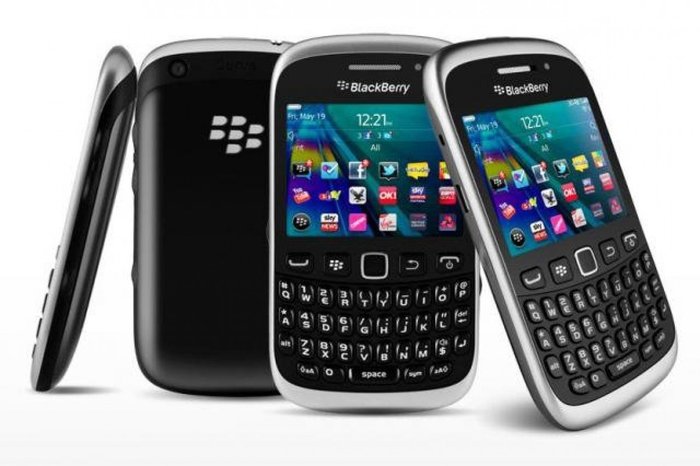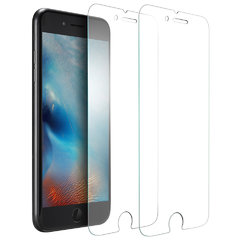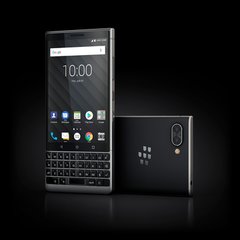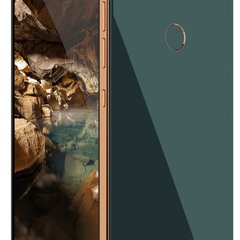What is happening with BlackBerry?

Reasons for BlackBerry failure
There is not just one reason for the failure of BlackBerry, but a mixture of different inner and outer conditions that lead to such an outcome. Anyhow, the conclusion is that the company was not responded to all of the challenges that happened adequately. If we would still look up for the primary reason for the failure, it would be a battle with the newcomers on the smartphone market - Apple and Android. BlackBerry’s peak was far back in 2013 when it had 85 million users worldwide. In March 2016, this number fell down by 60 million. Android and iOS platform won the battle. By the time BlackBerry realized that there is a problem, it was already too late. The battle with Apple began in 2007, with the release of the iPhone. In that time, BlackBerry was focused on keeping the current market (business and governments, especially in the US) neglecting other market segments. The company was happy with the status they had in pro circles, and they did not believe that anyone else would be interested in smartphones. Oh, how wrong they were. When Android started to gain bigger market share with quite reliable and affordable devices, BlackBerry finally realized that they have to change something or they will vanish. BlackBerry tried to adjust to the market with the release of BlackBerry DETK50, an Android-based phone, which was designed and produced by Alcatel. However, the industry and users viewed it as just an improved version of Alcatel Idol 4 which has quite a few BlackBerry elements. It simply wasn't good enough. And if we look just a few years back, we'll see that the first Android phones were actually copies of BlackBerry brand. If we continue our analysis, we will find some other reasons for BlackBerry failure, which also played a significant part in the ending of an era. These reasons are: - Outdated releases - the company released new BlackBerry PlayBook tablet in 2011, with the focus on Adobe Flash Player, as a new way and a future for phone content. The tablet was really pricey and did not have an email client built in. We all know what happened with Flash and how this story ended. - Hardware problems - we're referring to the fiasco with BlackBerry Z10 and Q10 devices, both released in 2013. Although one had a touchscreen and one great qwerty board, they were nowhere near as good as the rivals or as trustworthy as BlackBerry phones used to be. - Application problems - BlackBerry apps can’t compare to the one Apple and Android have. When BlackBerry 10 came out, in 2013, it had good software, but the apps it supported couldn't stand in line with competitors. - BlackBerry 10 delay - BlackBerry 10 is an OS which launch got delayed over and over again. As it was delaying, consumers were more and more on board with iOS and Android team. When it was finally launched in January 2013, it simply wasn't good enough to get the lost customers back.What exactly happened in September 2016?
On September 28th, John Chen, CEO of BlackBerry said that the company plans to end all internal hardware development and is determined to outsource that function to its partners. Furthermore, on the official BlackBerry blog, on October 3rd, Chen wrote: “BlackBerry is no longer just about the smartphone but the smart in the phone. This is not a new direction for BlackBerry, but a continuation of our strategy.” Chen additionally stated that the company recently made BlackBerry Hub, Calendar and Password Keeper, which can be found on Google Play. By making this application, BlackBerry wanted to begin its journey as a software and security focused company. BlackBerry Hub is an app which gathers all of yours email and messages in one place, Calendar allows you to sync all of your calendars while being able to dial the number simultaneously and much more. And the last, Password Keeper keeps an eye on your passwords, gather all of them together and is really easy to use. By creating these apps BlackBerry wanted to keep its business and government market, as well as winning over some new ones and position itself as a brand which you can trust when it comes to security. Such a maneuver is definitely not a surprise. The Canadian company has been struggling for quite a while. Its smartphone market share in the second quarter of 2016 was just 0,1%, with the sales of a little bit more than 400,000 products. Top management of the company realized that they have disappeared from the smartphone market and decided to turn their business in another direction.What can we learn from BlackBerry?
BlackBerry wasn’t just ‘some’ company. BlackBerry affected people’s lifestyle, and it was the first phone that was advertised in this way, as a phone for a specific way of life. One of the main features of BlackBerry devices was efficiency demonstrated in BlackBerry’s Messenger app, which was THE app for communication in the early 2000s. We will also remember the phone that was always connected online, sync with Microsoft Outlook, and the phone that US President Obama used. BlackBerry gave the world a new way of communicating and pave the way for all the smartphones we're using today. Unfortunately, it didn't last. The main lesson that we can learn from BlackBerry is simple: adapt or die. No company made it without acknowledging changes on the market. To stay on top, you need to be aware of the new trends and changed conditions in your playground. If someone new appears you better keep an eye on them because it can be the next iPhone who will come out of nowhere and change the entire industry. Images from: Electrospaces, HIT-counts, Celular phonesKategorier
Futuristic Future Review Market Compare models Coming Soon General New Technologies News Actual Alcatel Tips Huawei Gorilla glass Comparation Smartwatch Apps Software Apple Blackberry HTC Motorola Nokia Sony LG Samsung Android Sony Ericsson Interesting Little school Inovations Microsoft Symbian iOS Acer Google Games Popular
Populære opslag
Tags
New model Android Samsung nokia apple iPhone review Inovations HTC Blackberry iOS Google LG motorola Operative system research sony Galaxy update market share Samsung Galaxy S8 galaxy s5 Ice Cream Sandwich LG G3 price Sony Ericsson AMOLED LG G3 Future vision Gingerbread definition Tablet camera Huawei game iPhone 5S LG G3 screen
Søg
Søg og se de seneste blogindlæg.








